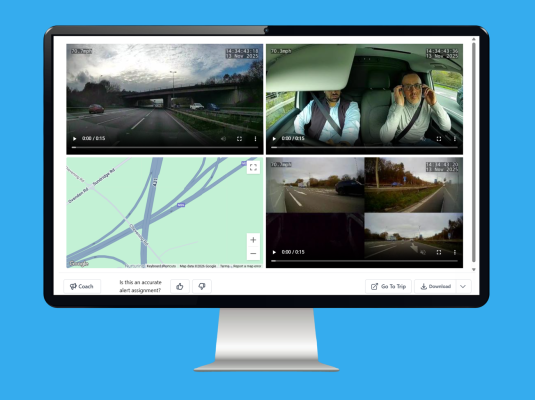Transport operations are evolving at pace. Logistics firms, fleet providers and courier networks all face increasingly complex demands that challenge traditional ways of working. As technologies advance and regulations tighten, success depends not just on operational know-how but on refined leadership. For managers in the transport sector, having a solid grounding in both day-to-day procedures and modern management techniques is now vital.
The challenges of today’s operations mean the old reliance on technical experience alone is no longer enough. Growing your role and supporting company performance now hinges on building strategic thinking, people management and project delivery capabilities. Formal development pathways help equip managers to handle change and guide teams with confidence.
Meeting New Expectations in Transport Management
Middle managers in transport serve as a vital bridge between frontline workers and senior leadership. Their responsibilities have expanded far beyond resource allocation or basic oversight. They must now implement new digital systems, navigate compliance requirements and support sustainability goals, all while delivering reliable service.
As a result, structured training options are growing in popularity. Many professionals are turning to recognised pathways such as CMI Training Courses, which offer practical learning in leadership, project management and strategic planning. This kind of qualification gives managers a toolkit to support real-world improvement while boosting their prospects for promotion.
The CMI Level 5 qualification, in particular, is suited to those managing teams or projects across transport networks. It helps sharpen the skills needed to guide complex operations, make informed decisions and communicate effectively across departments. These qualities are increasingly important for those seeking to drive efficiency and adapt to sector challenges.
Adapting to Digital Tools and Evolving Standards
Technological innovation is reshaping transport operations. From route optimisation to real-time telematics and compliance monitoring systems, the tools available to managers are powerful but also demand new skills. Each implementation introduces fresh learning curves. Successful adoption depends on leadership that can manage change effectively.
Managers must first become confident users of new systems before encouraging uptake across their teams. This includes identifying benefits for frontline staff, delivering relevant training and creating a feedback loop that supports ongoing adjustments.
Alongside digital adoption, industry regulations are becoming more stringent. Whether managing emissions targets, health and safety rules or driver hour limitations, managers must stay current. CMI Level 5 qualifications help bridge knowledge gaps and support a proactive mindset toward continuous improvement.
Leadership and Communication Across Distributed Teams
The unique structure of transport work, with drivers and dispatchers often operating remotely, means communication must be robust and clear. Managers must keep operations aligned despite differing schedules, locations and working conditions.
Best practice includes combining digital communication tools with structured check-ins. Video calls, shared dashboards and real-time messaging platforms allow for better visibility and responsiveness. Managers also benefit from setting expectations through clearly documented procedures and using consistent formats for shift handovers and updates.
A strong team culture does not happen by accident. Leadership in transport means fostering trust, offering support and encouraging professional development. Leaders who engage their teams regularly and use data to guide discussions tend to see better performance outcomes and higher morale.
Flexible Learning for a Demanding Workload
Professional development can be hard to prioritise when dealing with urgent operational issues. Managers often face unpredictable schedules, leaving little time for formal study. However, qualifications such as the CMI Level 5 are often designed with modular structures. This enables learners to progress at their own pace.
Transport professionals benefit from planning their learning around quieter periods and focusing their assignments on real workplace projects. This makes study feel more relevant and allows skills to be applied immediately.
In some organisations, managers form peer support groups to share insights and stay accountable. These communities of learning are particularly effective in helping individuals progress through qualifications while handling operational challenges.
The Value of Management Development for Business Outcomes
Improved management capability directly influences business performance. Organisations that invest in leadership development see better decision-making, stronger resource use and improved delivery outcomes.
For example, fleet utilisation and on-time performance often rise when managers use structured planning methods. Operational costs tend to decrease through better scheduling, reduced idle time and data-led maintenance strategies.
Driver retention is another area positively impacted by skilled managers. Good communication, clear expectations and ongoing feedback support a more stable workforce. This reduces the need for constant recruitment and minimises disruption across services.
The CMI Level 5 framework supports these improvements by focusing on transferable skills such as planning, analysis and effective delegation. These are all crucial for efficient transport operations.
Building a Career Development Pathway
Creating a clear plan for career progression is essential for long-term success. Transport professionals are encouraged to begin with a skills review, identifying areas of strength and gaps relative to industry benchmarks.
Once priorities are set, the next step is choosing the right qualification level. The CMI Level 5 is ideal for those already managing teams or projects. It offers a balance between strategic learning and practical application.
Setting a study schedule is vital for staying on track. Many professionals build their learning plan to align with annual goals, factoring in seasonal business peaks. Support from employers, whether through funding, mentorship or designated learning time, significantly improves completion rates.
A structured pathway from Certificate to Diploma and eventually Chartered Manager status offers ongoing progression. It ensures development keeps pace with industry changes.
Staying Ahead in a Competitive Sector
Transport businesses increasingly rely on adaptable and forward-thinking managers to keep services running smoothly and customers satisfied. The most effective managers combine operational expertise with strong leadership. They navigate shifting priorities, motivate their teams and implement new ideas confidently.
Investing in formal training not only enhances job performance but also increases visibility and opportunity within the business. Employers value staff who take the initiative to develop their skills and bring structured thinking to complex problems.
By building leadership confidence and strategic understanding, transport managers can meet current demands while preparing for future growth. The road ahead will involve more automation, stricter standards and shifting client expectations. Those equipped with the right skills will be best placed to thrive.
Shaping the Future of Transport Through Skilled Leadership
The transport industry needs managers who can think ahead, act decisively and lead with clarity. As the sector continues to transform, those with formal training and the ability to adapt will stand out. With growing access to flexible and career-relevant qualifications like the CMI Level 5, transport professionals now have more tools than ever to develop, grow and lead effectively.



